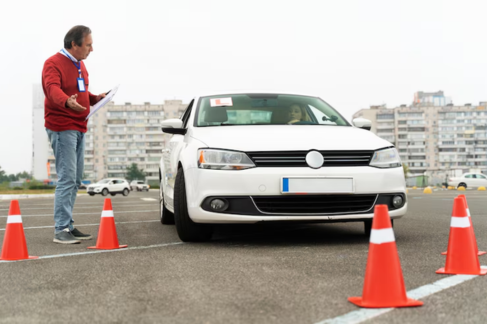How Can Driving Lessons for Teens Help Overcome Nervousness and Build Confidence?
Learning to drive is a significant milestone for teens. It marks a step toward independence, freedom, and responsibility. However, it also brings a range of emotions, chief among them, nervousness.
Many teens feel anxious about learning to drive, which is completely natural. Fortunately, structured driving lessons for teens can do more than just teach technical skills; they can also help teens manage anxiety, build confidence, and become safe, capable drivers.
Understanding Nervousness in Teen Drivers
Nervousness is common among teen drivers, especially at the start of their driving journey. Several factors contribute to this anxiety:
- Fear of making mistakes or causing accidents
- Pressure to perform well in front of instructors or parents
- Inexperience behind the wheel
- Sensory overload from managing multiple tasks while driving
This nervousness, if left unaddressed, can hinder progress and potentially lead to unsafe driving habits. That’s where professional driving lessons come in.
The Role of Professional Driving Lessons
Professional driving instructors are trained not only to teach road rules but also to handle the emotional side of learning to drive. Driving schools offer a supportive and controlled environment that helps teens gradually adjust to the responsibilities of driving.
Structured Curriculum Builds Familiarity
Driving schools follow a structured curriculum that introduces concepts gradually. Starting with basic maneuvers such as steering and braking, lessons evolve to include more complex skills like highway driving and parallel parking. This step-by-step approach helps teens feel less overwhelmed.
Repetition Reduces Anxiety
Practice is key to overcoming nervousness. Regular driving lessons give teens repeated exposure to driving scenarios, helping them become more comfortable behind the wheel. With each session, their familiarity with road conditions and traffic rules increases, reducing stress levels.
Boosting Confidence Through Expert Guidance
Confidence doesn’t come overnight, but with the right support, teens can build it steadily.
Constructive Feedback from Instructors
Unlike family members who may be nervous themselves or overly critical, driving instructors provide calm, constructive feedback. They help teens correct errors in a positive manner and focus on progress rather than perfection. This empowers young drivers to feel capable rather than discouraged.
Safe Environment for Making Mistakes
Making mistakes is part of learning. In a driving lesson, teens are in a vehicle equipped with dual controls, giving instructors the ability to take over when needed. This creates a safety net that allows teens to take risks and learn without the fear of serious consequences.
Goal-Oriented Lessons Create Motivation
Driving schools often set specific goals for each lesson—whether it’s mastering a three-point turn or navigating busy intersections. Meeting these goals gives teens a sense of accomplishment, reinforcing their confidence and showing them that improvement is always possible.
Gradual Exposure to Real-Life Driving
One of the most effective ways to overcome fear is through gradual exposure, and driving lessons are designed to do just that.
From Quiet Streets to Busy Roads
Driving instructors typically begin lessons in low-stress environments like residential neighborhoods. As the teen gains skill and confidence, lessons progress to more challenging environments, such as city traffic or highways. This incremental exposure ensures that the teen isn’t overwhelmed.
Real-Time Problem Solving
As teens encounter unpredictable scenarios, like sudden stops or aggressive drivers, they learn how to respond calmly and appropriately. With the instructor’s guidance, these experiences become valuable lessons in emotional regulation and decision-making.
Addressing Specific Fears and Challenges
Each teen is different, and some may struggle with particular fears, such as merging onto highways or driving in bad weather.
Customized Instruction
A major benefit of professional driving lessons is personalized attention. Instructors can tailor lessons to target a student’s specific concerns. For instance, if a teen is especially nervous about parking, more time can be spent practicing in different scenarios.
Building Mental Preparedness
Instructors also help teens develop mental preparedness strategies, such as deep breathing, visualizing a successful drive, or breaking tasks into smaller steps. These techniques help reduce panic and foster a calm mindset behind the wheel.
The Long-Term Benefits of Confidence Behind the Wheel
Learning to drive with confidence has long-lasting effects beyond the initial licensing test.
Reduced Risk of Accidents
Confident drivers are better decision-makers. They’re more likely to respond calmly in emergencies and less likely to overreact or freeze under pressure. This reduces the risk of collisions or dangerous situations.
Greater Independence and Responsibility
Once a teen feels confident driving, they’re better prepared for the responsibilities that come with it, such as planning routes, obeying laws, and being accountable for their safety and the safety of others.
Positive Association with Driving
Teens who learn to drive in a supportive, structured environment tend to associate driving with empowerment rather than anxiety. This positive mindset contributes to more enjoyable and safe driving experiences in the future.
Final Thoughts
Driving lessons do more than prepare teens for their driving test. They serve as a powerful tool to help young drivers overcome nervousness, learn resilience, and build lasting confidence. With expert guidance, a supportive structure, and real-world experience, teens can transition from anxious beginners to calm, capable drivers.
If your teen is feeling nervous about driving, enrolling them in a reputable driving school, like Push Start Driving, might be the most important step you take. It not only prepares them for the road but also equips them with the emotional tools to navigate it with confidence and responsibility. For more information, visit the site.
For more information visit us : thebizmagazine.com

